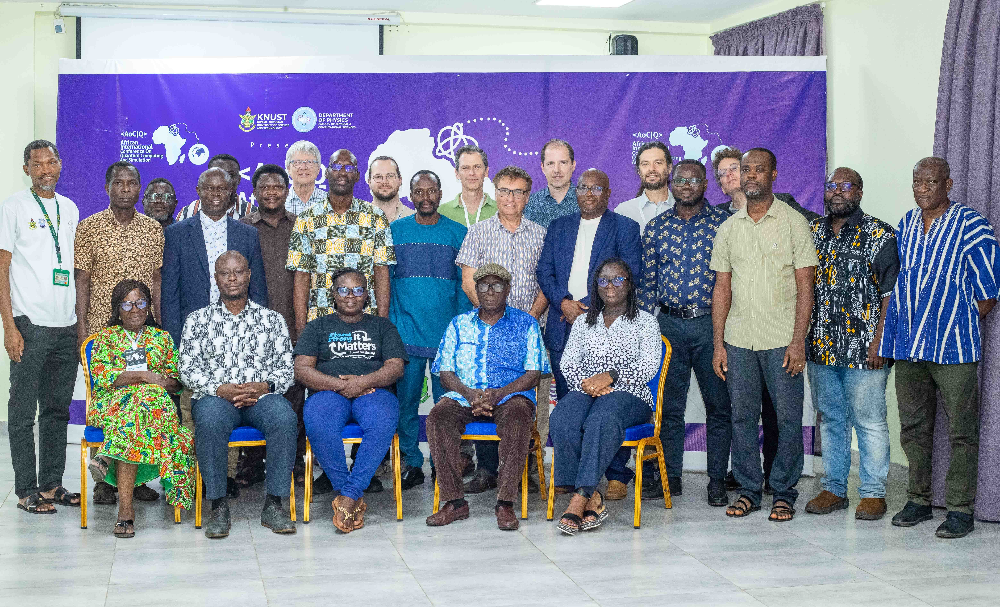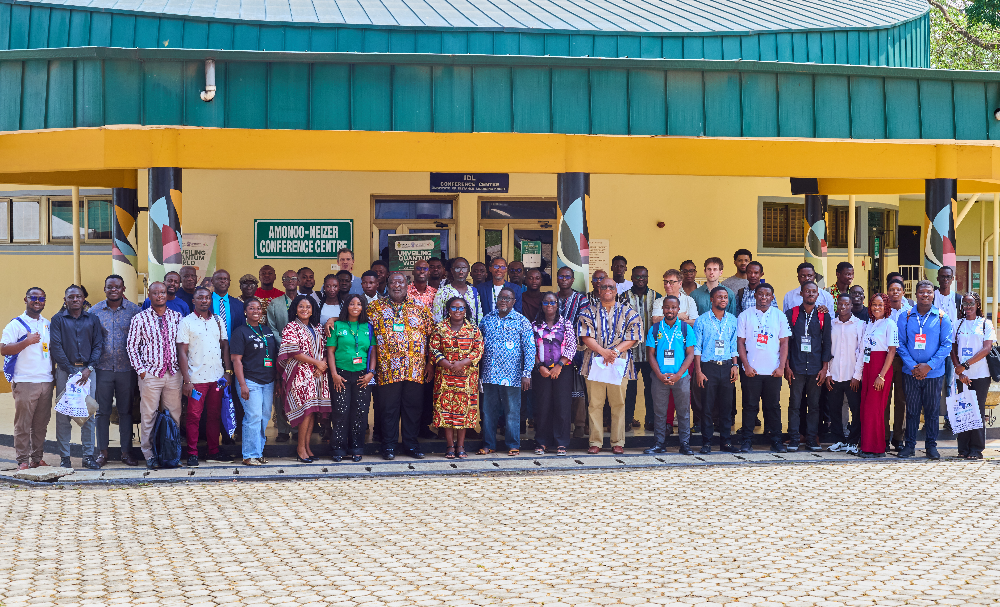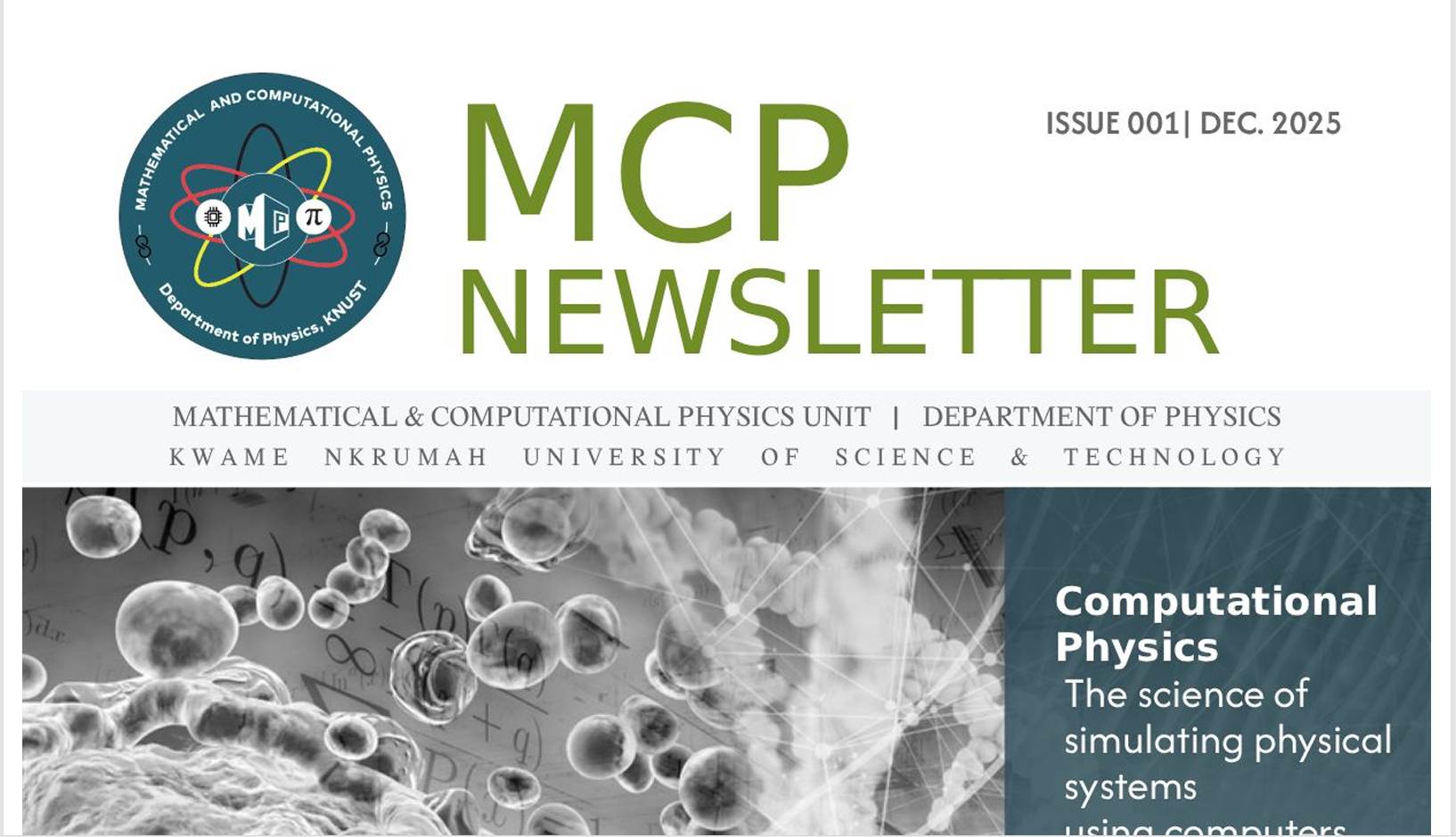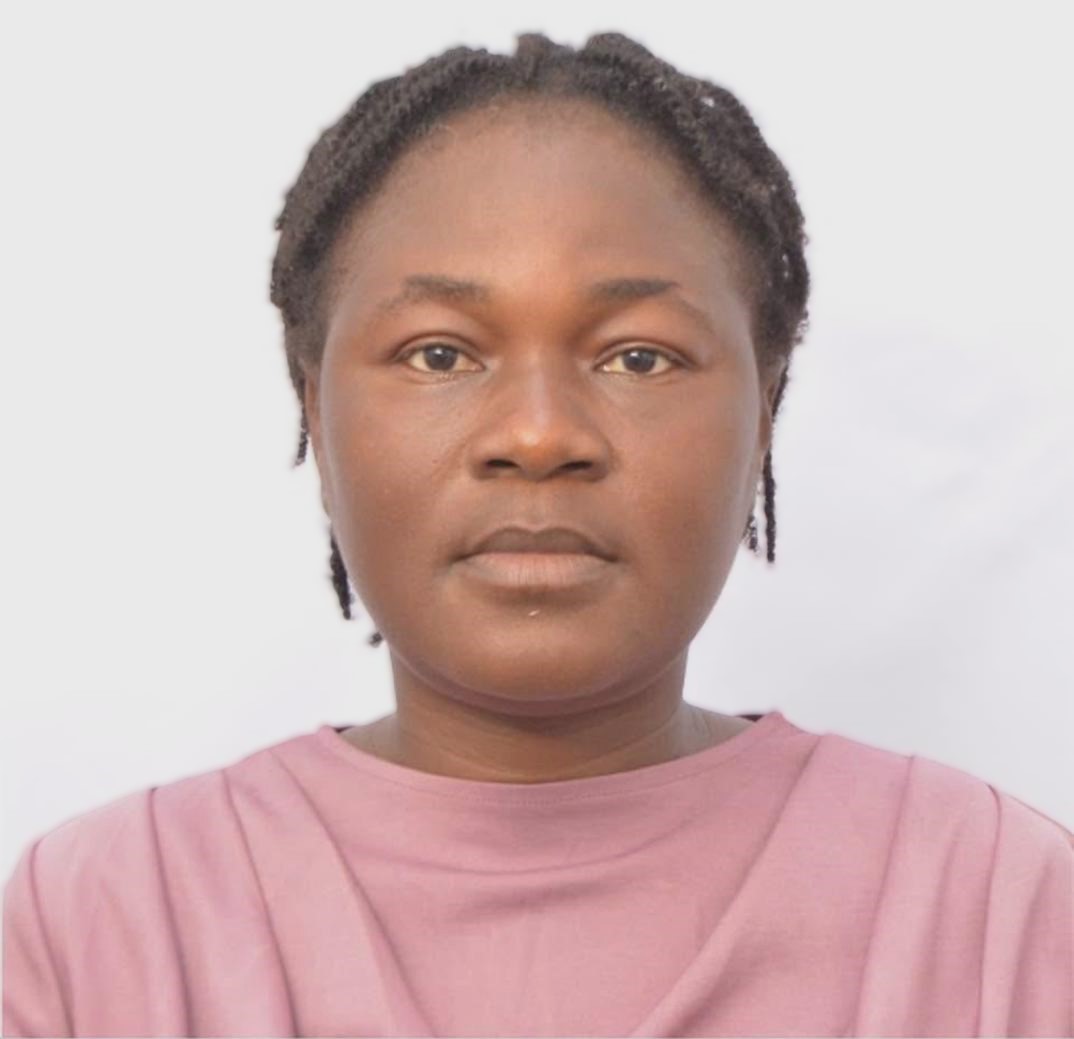GPOL launches Microscopy Workshop Series 2025 on Polarized Light Microscopy and 3D-Printed Optics
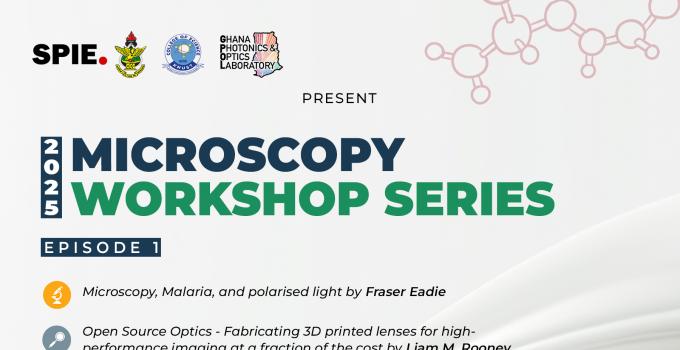
The Ghana Photonics and Optics Laboratory (GPOL) opened its 2025 Microscopy Workshop Series with a live online session on 22 August 2025. The event introduced the series and highlighted GPOL’s mission within KNUST’s Department of Physics to advance education, research and outreach in photonics and optics. The session was introduced and moderated by Dr Akyana Britwum, Principal Investigator of GPOL, who outlined the series goals and facilitated the discussion.
Two talks anchored the programme
Microscopy, Malaria, and Polarised Light (Fraser Eadie, University of Strathclyde)
Fraser gave an overview of bright-field and dark-field imaging, core lens optics and the basics of polarisation, then introduced the OpenFlexure microscope as a low-cost platform for polarised light microscopy applied to malaria detection. He explained that hemozoin in infected blood is birefringent and can be visualised with crossed polarisers on a simple blood smear, so staining is not required.
Attendees asked whether adaptations such as hyperspectral imaging would be possible. Fraser confirmed that structured illumination and hyperspectral imaging are feasible, citing a student-built version that added a diffraction grating and that a secondary camera could be added for hyperspectral capture within a Raspberry Pi workflow.
Other questions covered stage motion, alignment of the analyser and polariser, and switching between polarised and unpolarised views during demonstrations. Fraser responded with practical guidance on sample handling, motor control and quick polariser alignment to move smoothly between imaging modes.
3D-Printed Optics for High-Performance Microscopy (Dr Liam Rooney, University of Glasgow) Dr Liam introduced 3D-printed optics produced by masked stereolithography, showing how transparent printed lenses and even complete printed microscopes can offer high-quality imaging at low cost for teaching and early-stage research.
During the Q&A section, participants asked about optical properties, post-processing and performance. Liam noted a resin refractive index around 1.51 with no observed yellowing or hazing in typical use, and plans to characterise transmission in the near infrared. He outlined practical finishing steps such as post-curing, progressive surface polishing and applying a thin top-coat to improve surface quality and contrast. Questions on resolution, contrast and compatibility with fluorescence and bright-field modes led to discussion of ongoing optimisation and the advantages of local fabrication for rapid iteration, easy part replacement and maintenance.
The first episode of the GPOL Microscopy Workshop Series closed with thanks to Dr Liam Rooney and Fraser Eadie for their active participation and for sharing their expertise so generously. Appreciation was also extended to Dr Akhil Kallepalli of the University of Strathclyde, whose suggestion inspired the organisation of this workshop. Finally, GPOL expressed gratitude to all participants who joined the session and contributed through questions and discussion, reinforcing the importance of collaboration and knowledge-sharing in advancing photonics and microscopy research across Ghana and West Africa. About GPOL GPOL is hosted in the Department of Physics at KNUST and is led by Dr Akyana Britwum and Dr Michael Kweku Edem Donkor, supported by technicians Mr Martin Adu-Kusi and Mr Felix Kojo Amewovi.
